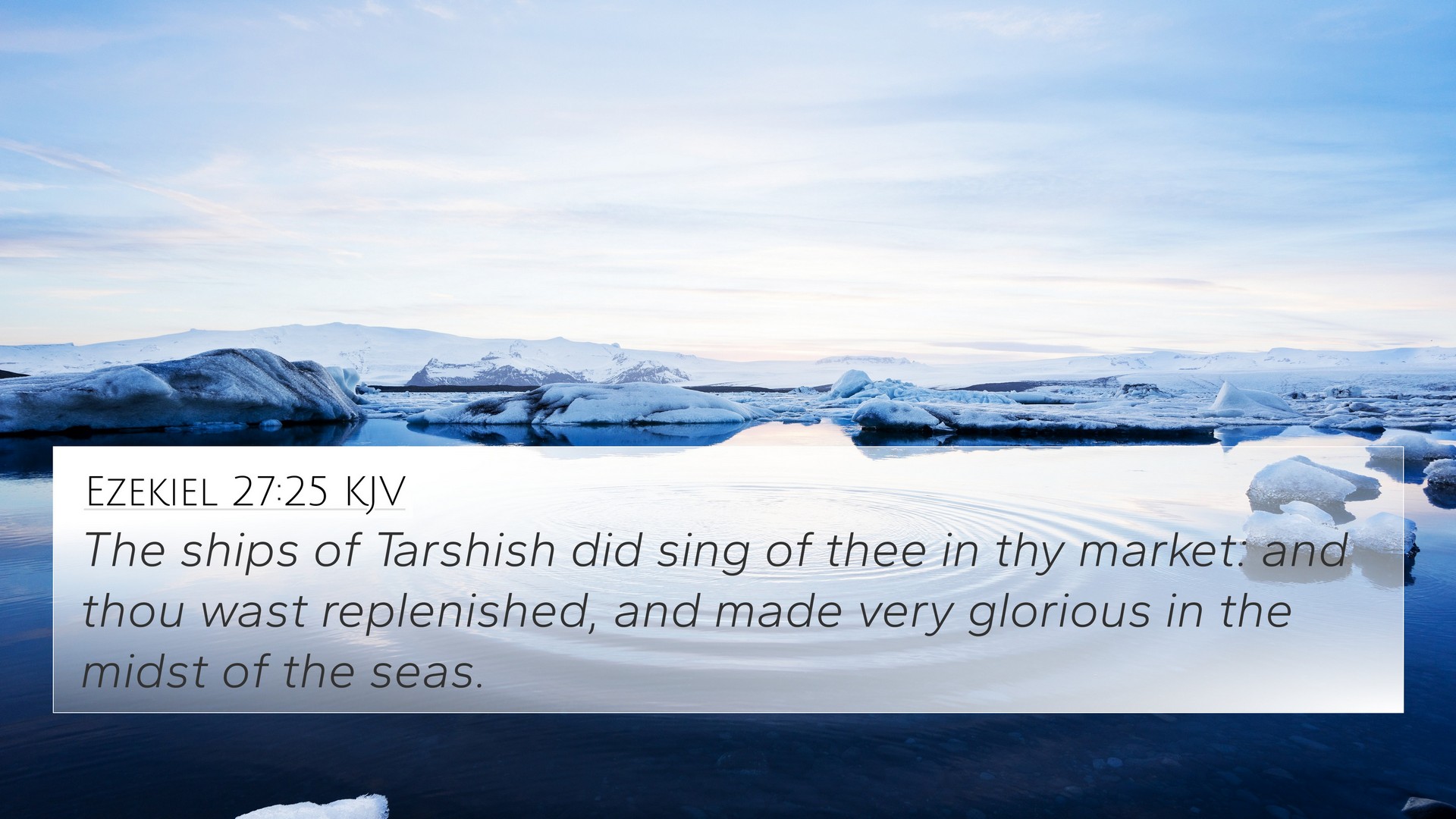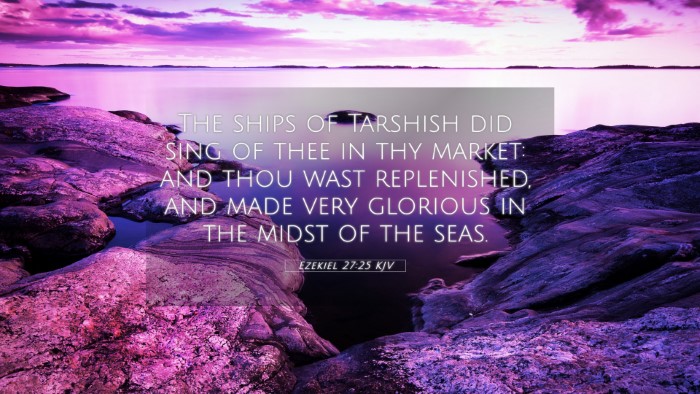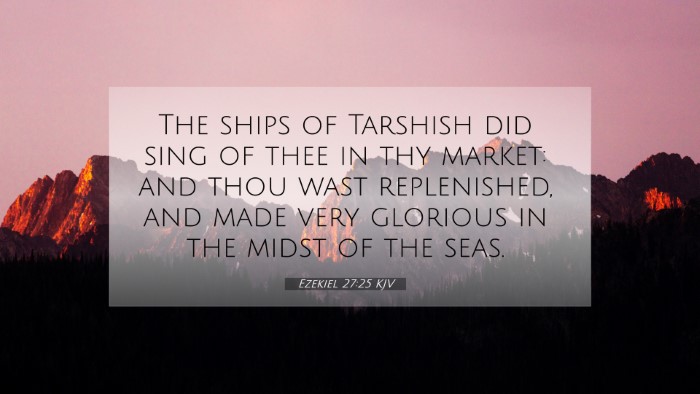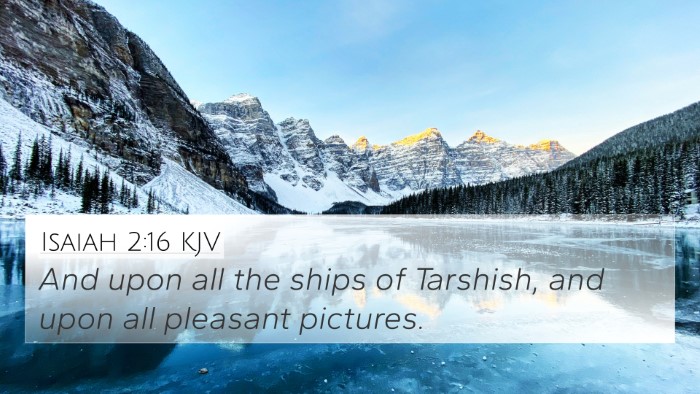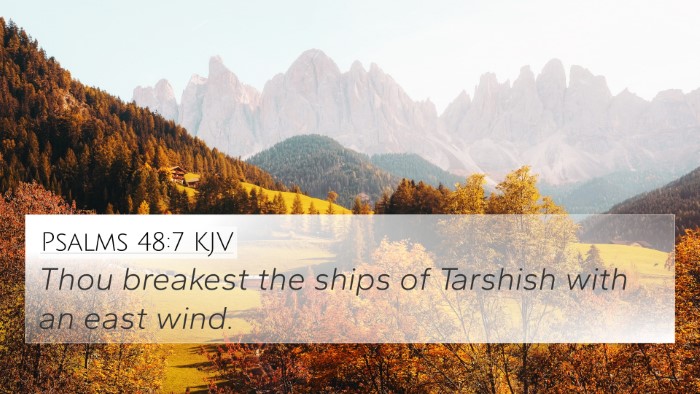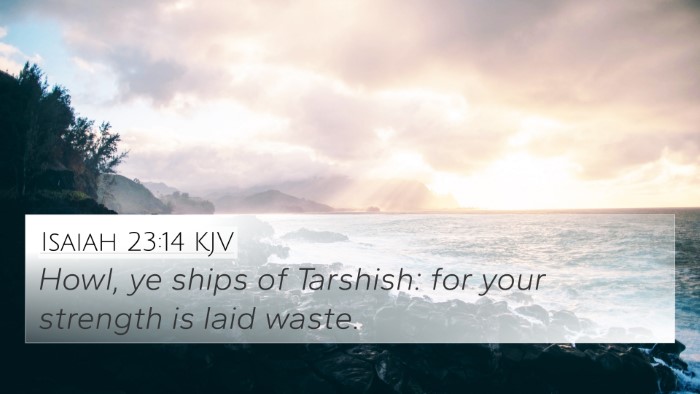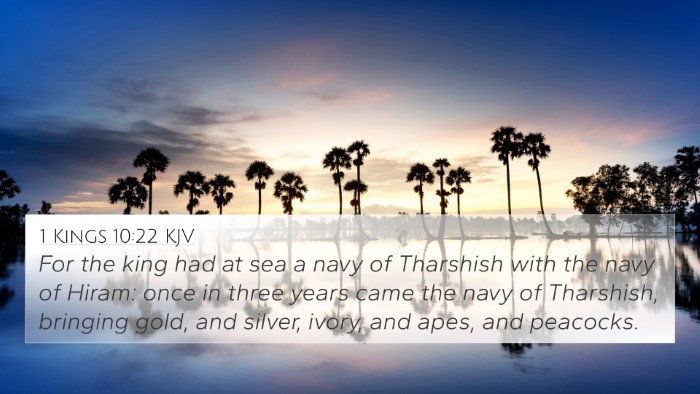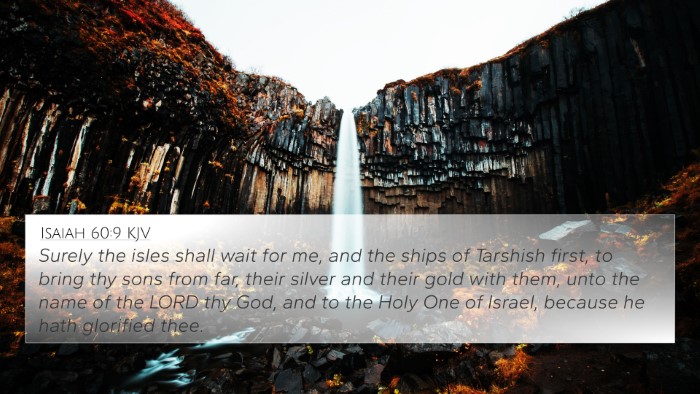Ezekiel 27:25 - Summary and Interpretation
Ezekiel 27:25 states, "The ships of Tarshish were the carriers for your merchandise. You were filled with heavy cargo in the heart of the sea." This verse is part of a larger lamentation over the fall of Tyre, a prominent trading city. Here, the imagery of ships and trade is utilized to represent not just economic power, but also the spiritual downfall that comes from an over-reliance on material wealth.
Contextual Background:
This passage is situated within Ezekiel's prophecies against Tyre, portraying the city as a significant maritime power whose wealth has led to arrogance. The mention of Tarshish symbolizes the extensive trade routes that reached far and wide, illustrating the depth of Tyre's commercial connections.
Public Domain Commentary Insights:
- Matthew Henry: Henry describes Tyre’s fall as a consequence of her own pride. He emphasizes that while the ships of Tarshish symbolize prosperity, they also foreshadow impending judgment due to the city's reliance on worldly riches rather than faithfulness to God.
- Albert Barnes: Barnes notes that this verse illustrates the finality of Tyre's destruction. The "heavy cargo" signifies not just material wealth but also the burdens of sin that comes with it. Barnes encourages readers to see the parallel between worldly commerce and spiritual emptiness.
- Adam Clarke: Clarke observes that the "heart of the sea" metaphorically links to both danger and abundance. He argues that while Tyre appeared prosperous, its vulnerability to divine judgment was ever-present, serving as a warning of maintaining one's focus on spiritual matters rather than material gain.
Connections to Other Bible Verses
This verse can be cross-referenced with several key biblical texts that express similar themes of commerce, pride, and divine judgment:
- Isaiah 23:1-18: A prophecy concerning the fall of Tyre, similar to Ezekiel's lament.
- Revelation 18:10-19: The fall of Babylon is depicted in a manner reminiscent of Tyre, emphasizing the ephemeral nature of worldly wealth.
- Jeremiah 49:18: A warning to Edom, reflecting on judgment due to pride, which can be equated to Tyre's fate.
- Proverbs 11:28: "He who trusts in his riches will fall," paralleling the danger of reliance on material success.
- James 5:1-3: A condemnation of the rich for hoarding wealth, analogous to Tyre’s predicament.
- Psalm 49:6-9: A reflection on the futility of wealth in the face of death, similar to the lament over Tyre.
- 1 Timothy 6:9-10: A warning about the dangers of wealth, aligning with the message of Ezekiel regarding Tyre's demise.
Interpreting and Applying the Message
The overarching theme of Ezekiel 27:25 serves as a reminder of the transient nature of material wealth and the importance of placing trust in God rather than riches. Educational tools such as a bible concordance can assist in understanding similar themes across scriptures for deeper insights.
Tools for Cross-Referencing
To explore these connections further, utilizing resources such as a bible cross reference guide can enhance one's study. Here are some tools and methods to consider:
- Bible Concordance: An essential resource for locating verses and understanding their relational context.
- Cross-Reference Bible Study: A method of studying the Bible by comparing similar themes and narratives across various books.
- Inter-Biblical Dialogue: Exploring how different parts of the Bible interact can illuminate deeper theological points.
Conclusion
In conclusion, Ezekiel 27:25 serves as a poignant reminder of the dangers of pride and materialism. By employing bible cross-reference systems, readers can uncover profound links between this verse and others, enhancing their understanding of scriptural themes and their implications for today.
